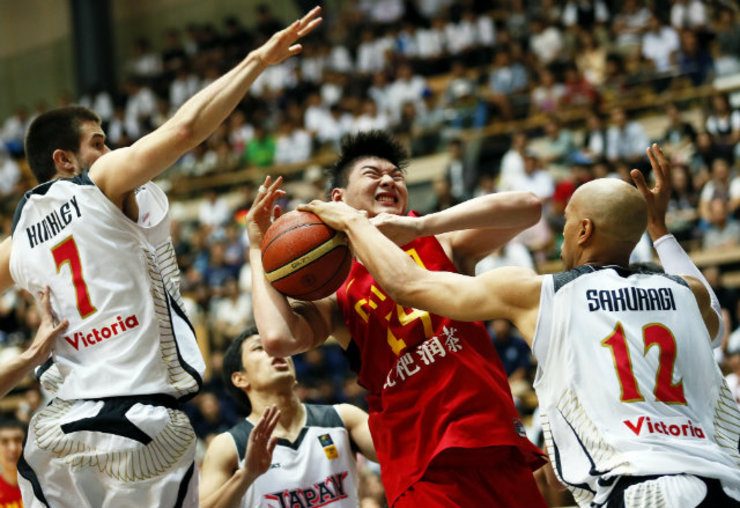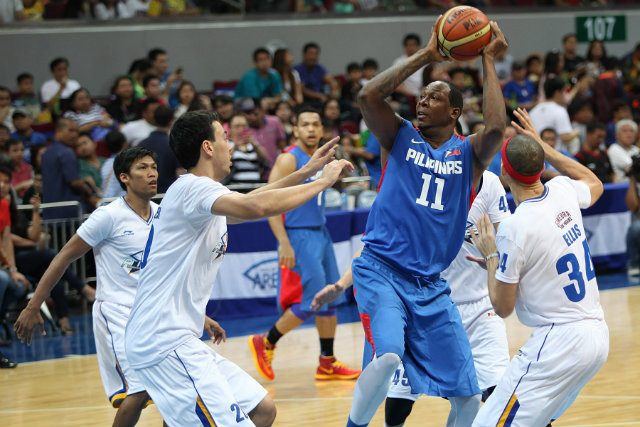SUMMARY
This is AI generated summarization, which may have errors. For context, always refer to the full article.

INCHEON, South Korea – China is hoping a new version of their famous “Great Wall of China” can help maintain their Asian Games basketball dominance as they come under heavy attack from rivals.
China, with players like towering NBA superstar Yao Ming, have won seven of the last nine men’s gold medals stretching back to their first triumph in Bangkok in 1978.
But since their 2010 Asiad victory on home soil in Guangzhou, China have seen the retirement of Yao, and have also lost former NBA players Wang Zhizhi and Yi Jianlian.
Now, under threat from hosts South Korea, Iran and the Philippines, they arrive in Incheon with two of the Games’ tallest players who can forge a reputation of their own.
Zhou Qi, 18, will tower over the opposition at 7-foot-1 1/2, while Wang Zhelin is equally intimidating at 7-foot 1/4
They are among the players drafted in as part of China’s rebuilding program under coach Gong Liuming after their defeat to South Korea at last year’s FIBA Asia Championship.
Only five players of the 12-man 2013 Asia Championship squad have been selected for Incheon.
China, 12th in world governing body FIBA’s rankings, have reached the final at every Asian Games since their first win 36 years ago, but on the last occasion South Korea hosted the Asiad, in Busan in 2002, the host nation pipped China to the prize with a dramatic 102-100 overtime victory.
Among their squad that day was center Kim Joo-Sung. Now 34, the 6-foot-9 talisman is the only survivor from that golden generation and will be looking for a glittering swan song.
Kim first took part in the Games 16 years ago as a gangly teenager, taking home a silver medal as Korea lost in the final to China and was forced to settle second again four years ago by the same opposition.
He has enjoyed a resurgence in form this year in the Korean Basketball League (KBL), averaging 12 points and more than 25 minutes on court per game.
The basketball-mad Philippines won the first of their four straight Asian Games championships in 1951, but have only managed one silver and two bronzes since – their last coming in 1998.
Their hopes of ending that 16-year barren run were dented when organizers banned their standout US import, the 6-foot-11 Andray Blatche, a former star with the NBA’s Brooklyn Nets.
‘We are going to win’
The center, who became a naturalized Filipino in June, did not meet a three-year residency requirement, the Games Organizing Committee ruled.
Despite the blow, the Philippines still harbor realistic medal chances having brought in the 6-foot-11 Marcus Douthit, another US-born naturalized Filipino, as a replacement for Blatche.
Jimmy Alapag, the captain of Gilas Pilipinas, will also see surprise action after postponing his retirement from international competition to replace the injured Jayson Castro, who was hobbled by leg ailments during the FIBA World Cup earlier this month.

Iran, ranked 20th by FIBA, are potentially the surprise package of the tournament and rated by many observers as favorites.
Their main weapon is the former Phoenix Suns NBA star Hamed Haddadi and teammate Mohamed Samad Nikkhah Bahrami was in confident mood as the team prepared in Tehran.
“We are going to win the Asian Games for the first time. Without a doubt, the Iranian basketball team will participate in the Asian Games to win the gold medal,” he said, according to the Tehran Times.
The basketball tournament will be split between the 7,406-seater Samsan World Gymnasium and the 5,5158-seat Hwaseong Sports Complex.
There are 16 teams in the men’s competition and 11 in the women’s.
Eight men’s teams – China, South Korea, Iran, Japan, Qatar, Philippines, Jordan and Taiwan – are seeded straight through to the 12-nation group stage which begins on September 23.
Before then the eight unseeded nations – Mongolia, Saudi Arabia, Kazakhstan, Hong Kong, Kuwait, Palestine, India and the Maldives – will fight it out in a qualifying competition.
The women’s tournament has been hit by a clash of dates for the leading nations with the FIBA women’s world championship, starting in Turkey this weekend.
It means China, winner of the last three golds, and Japan will send only ‘B’ teams to Incheon. South Korea, however, are going all-out for home gold and will send their second string to Turkey.
The women’s event, which begins on September 23, has six seeded teams – China, South Korea, Taiwan, Thailand, Japan and India – who automatically qualify for the quarter-finals.
The five unseeded teams – Mongolia, Hong Kong, Kazakhstan, Nepal and Qatar – play in a preliminary round to decide the other two quarter-finalists. – Rappler.com
Add a comment
How does this make you feel?
There are no comments yet. Add your comment to start the conversation.